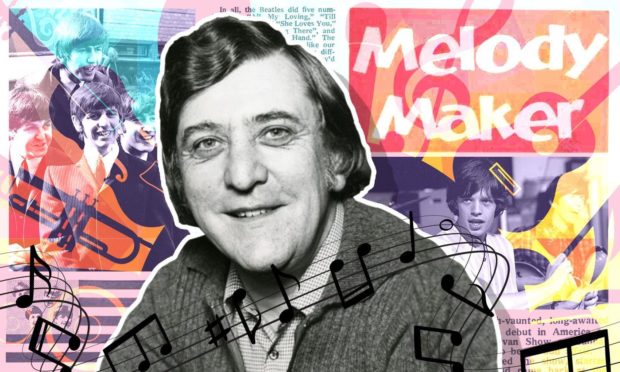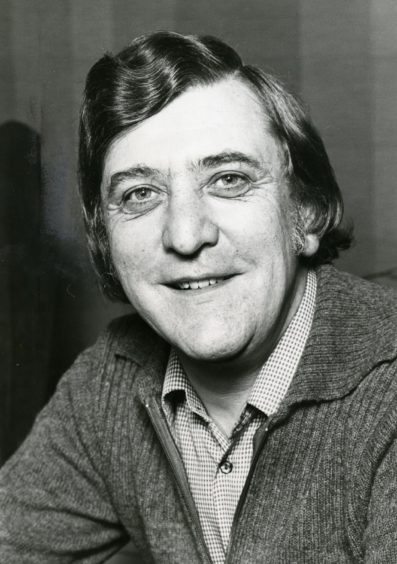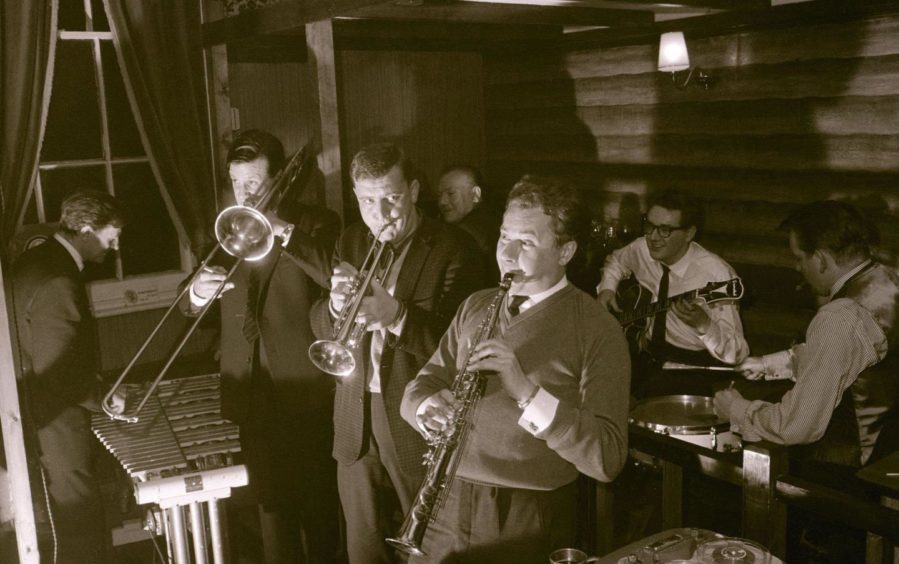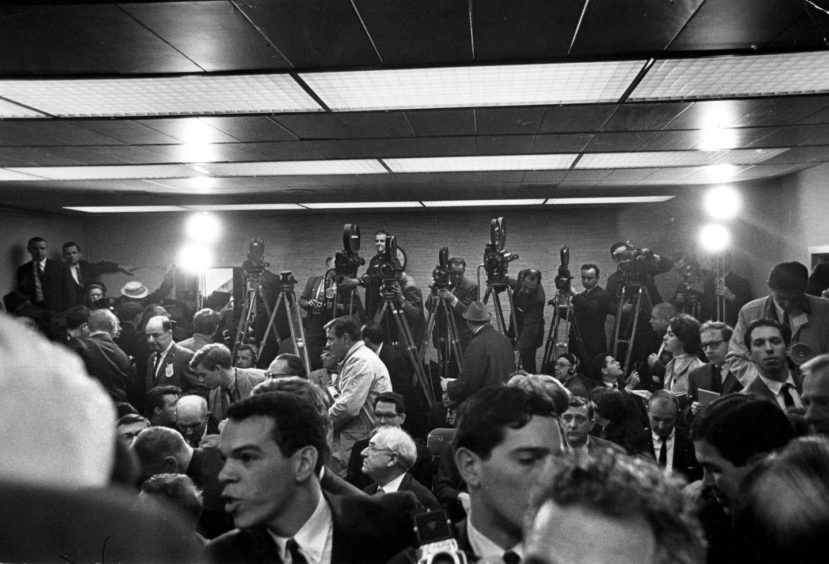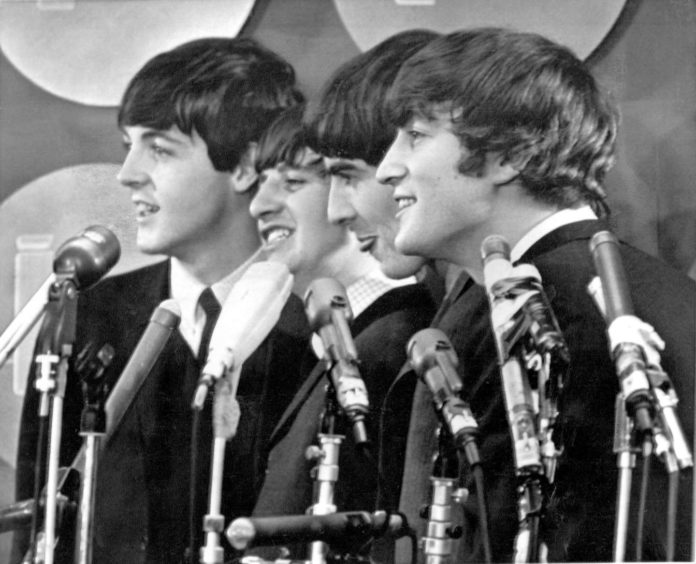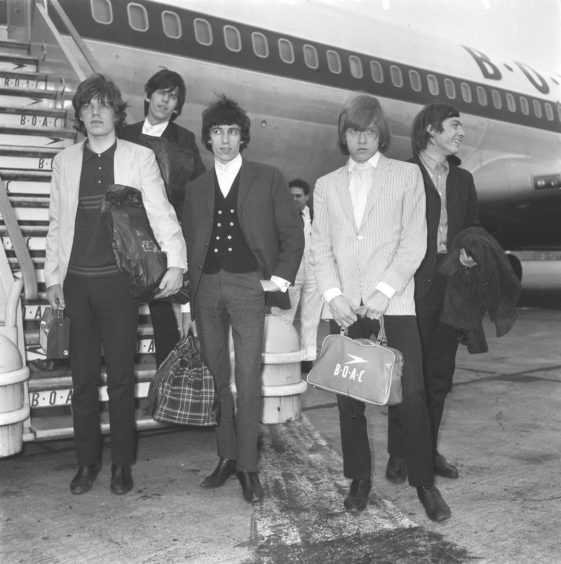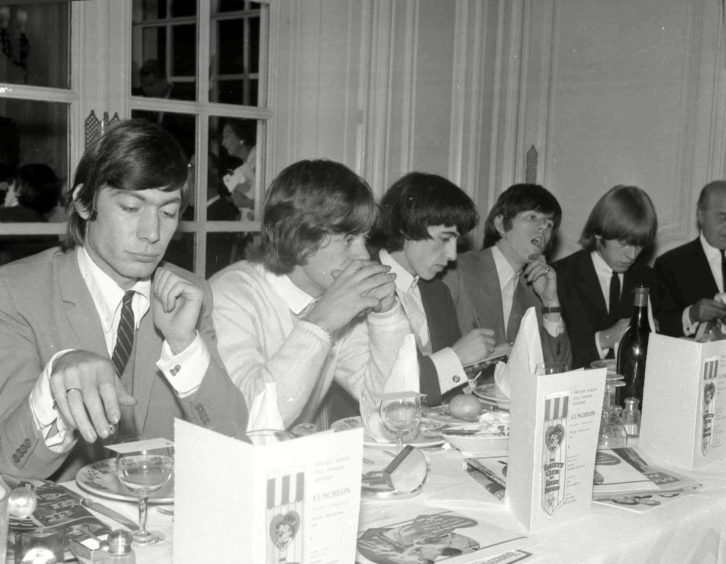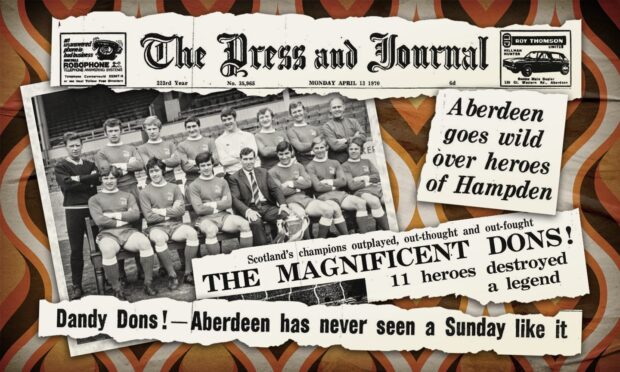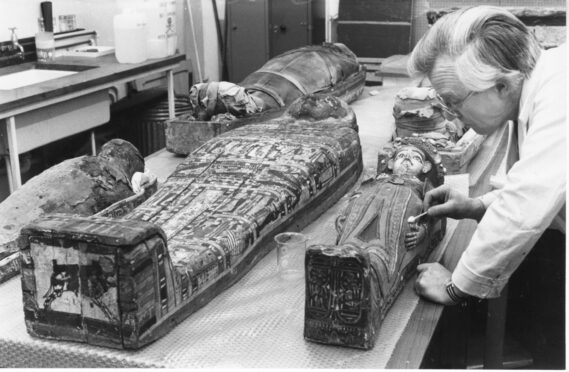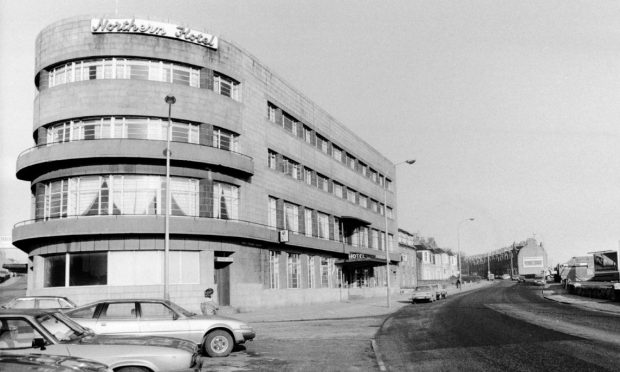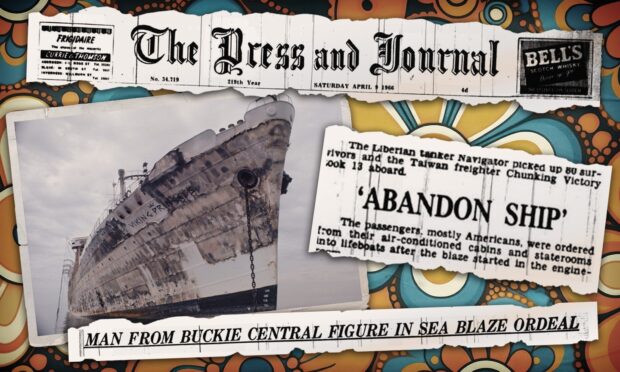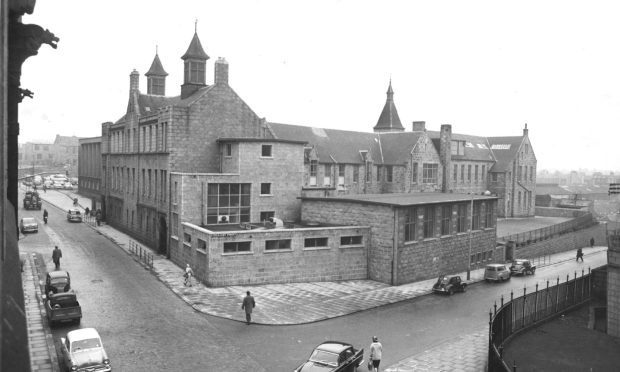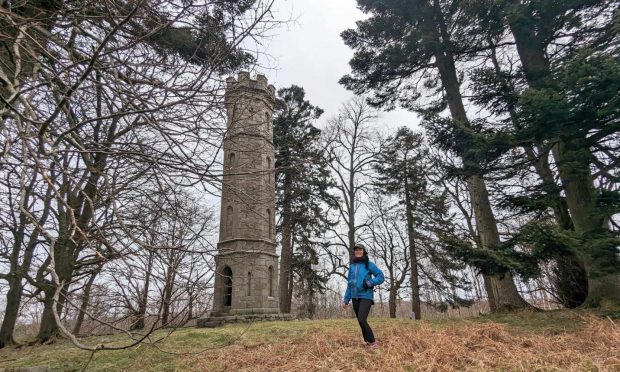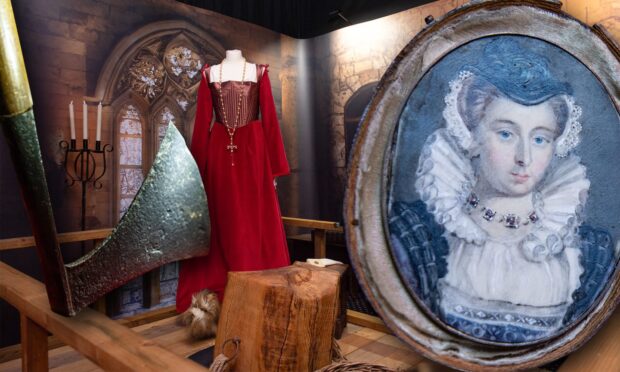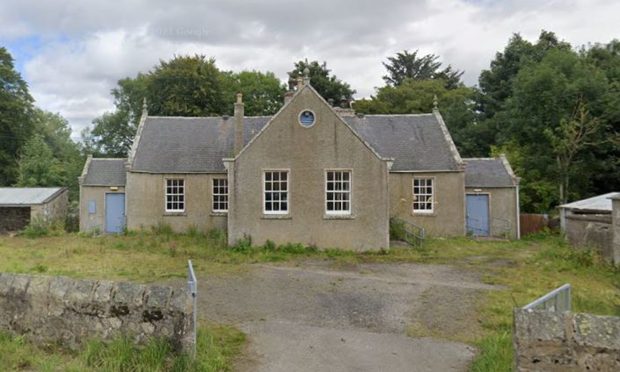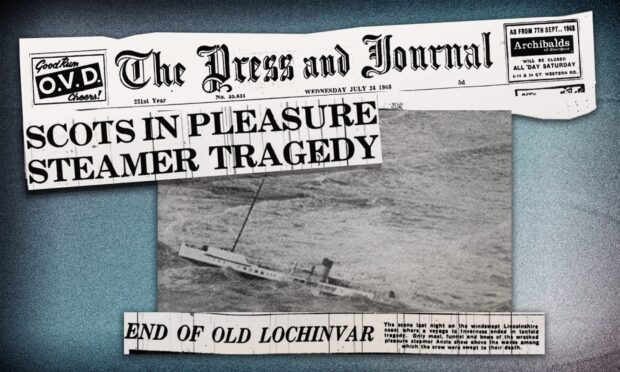Dundee journalist Jack Hutton chronicled the Swinging Sixties and became friends with The Beatles and The Rolling Stones.
He flew to New York with the Fab Four in February 1964 on their historic first trip to America where they were met by 5,000 screaming teenage fans.
Jack also went to the States that year with the Stones and accompanied the band to the Chess Studios in Chicago when they recorded number 1 hit It’s All Over Now.
So how did Jack make the journey from Glebelands and Stobswell schools to covering the first wave of what became pop music’s most dynamic years?
Who was Jack Hutton?
Jack was born on April 17 1928, in Sydney, Australia, where his father, a ship’s engineer, and mother were passing through on their way to Scotland.
He was brought up in Dundee and joined DC Thomson at the age of 15 and worked on the company’s series of weekly comics, including Dandy, Beano and Hotspur.
It was when he was called up for National Service with the RAF in 1947 that fate took a musical hand.
Stationed in Hampshire, Jack and a pal went into Salisbury for the day and blew some of their meagre service pay on a 78 record – Bunk Johnson and his New Orleans Band playing Darktown Strutters Ball.
“It really knocked me out that record – I really never recovered,” he said.
During his RAF service he learned to play the trumpet which was an interest which he kept up by playing in various ensembles throughout his life.
He returned to Dundee three years later, working on The Sunday Post where he was to meet his future wife Joyce who was from Lochee.
Back in Dundee Jack and friends were just ahead of the trad boom when they established the Dundee Jazz Club headquarters Parker Street with Tommy Glennan a real help at the start.
Formed then was The Pelican Jazz Band.
The club’s popularity grew and they began importing fine players from Glasgow and Edinburgh for appearances – like Tubby Hayes and Sandy Brown, the architect clarinettist whose untimely death in 1975 was to rob Jack of a great friend.
Soon Jack’s ambition was to make his hobby his work.
Heading to London
So it was off to London in 1954 and a reporting job with the Melody Maker.
In London Jack would play in the band of Ian Bell, one time member of The Pelican.
Trad jazz brought him into contact with the likes of Acker Bilk, Chris Barber, Kenny Ball, Humphrey Lyttelton, Jimmy Deuchar and Alex Welsh.
But playing had to fade out for Jack as his career in journalism progressed.
Taking over as the paper’s editor from the long-serving Pat Brand in 1962, Jack initiated a bold redesign of the Melody Maker.
The new look suited the changing mood of the 60s and he accepted the challenge of taking on the NME on the pop front.
The month they made Jack editor, a new record got into the charts.
It was a song called Love Me Do and its singers were four lads from Liverpool collectively known as The Beatles.
If ever there was a time and place to be boss of a music magazine, that time was the early ’60s and the place was here in Britain.
For with The Beatles came a music boom that was to knock not only Britain but the whole world sideways.
And for the next eight years Jack’s life was to become something of an endless whirl.
John Lennon and Ringo Starr he came to know as friends.
An up and comer called Mick Jagger was often treated by Jack to a beer.
And the man who was to become a pop superstar and synonymous with The Rolling Stones was a regular caller on the Hutton London household where the two daughters of Jack and Joyce would play happily on the Jagger knee.
New York
He flew to New York in February 1964 with The Beatles which opened America’s doors to a wealth of British musical talent.
John Lennon, Paul McCartney, George Harrison and Ringo Starr were greeted by thousands of American fans at the newly-renamed JFK Airport, mirroring the scenes they had left behind at Heathrow.
Jack cabled an exclusive three-page report for the Melody Maker where he declared “New York has gone stark staring Beatle mad”.
They held a press conference right after getting off the plane which Jack described as “even more fantastic” than the “tumultuous welcome” at JFK.
He said hardened reporters, broadcasters and TV interviewers “fought each other to hurl questions at the unruffled Beatles as cameras whirred and tape recorders turned”.
“Bedlam broke, jaws were threatened, Beatles press man Brian Somerville was shouted down and at one point it looked as though police would have to quieten the 200 bawling, brawling pressmen,” he wrote.
“But that was eventually accomplished by the witticisms of The Beatles themselves.
“They parried the wisecracks and returned cheek with interest and introduced humour.
“All with thick Liverpool accents.”
Jack was backstage when they performed on the Ed Sullivan Show and over 73 million Americans gathered around TV sets to see what all the excitement was about.
He said the much-vaunted and long-awaited Beatles TV debut turned out to be “an odd affair” and blamed the “ropey” sound and poor setlist.
Jack described closing number I Want To Hold Your Hand as “slow and rather weak” and suggested they should have finished the set with Twist And Shout.
He also gave details of how Elvis Presley and his manager Colonel Tom Parker sent The Beatles a good luck cable before the show.
Chicago
Jack was also with The Rolling Stones on their 1964 US tour in which he was present at their famous recording session at Chicago’s Chess Studios.
Jack also managed to sneak the underage Stones into a few jazz clubs along the way!
Jack was able to interview many people he admired, such as Louis Armstrong, Ella Fitzgerald, Pee Wee Russell and Sidney Bechet.
He famously took Billie Holiday on a shopping trip to M&S where she amazed the assistants at the till by hoisting up her skirt to retrieve a roll of banknotes to pay!
In 1970, Jack and Melody Maker’s circulation director, Peter Wilkinson, announced their departure from IPC, the paper’s owners, to start a new company with financial backing from City Magazines, which was owned by the young Rupert Murdoch.
Spotlight Publications launched several successful music periodicals with Jack as managing editor, including Sounds, which was devoted to progressive rock.
The growth proved too slow for Murdoch, however, and Jack and Peter forged an alliance with Morgan Grampian that was to prove more enduring, allowing them to undertake a number of initiatives.
In a successful career in music journalism he also launched rock music magazine Kerrang! alongside its first editor, Geoff Barton, in 1981.
He retired from publishing in 1987, having a big do at Ronnie Scott’s jazz club in London where he ending up jamming on stage!
Sounds closed in 1991, followed nine years later by the Melody Maker.
Jack continued to play well into his seventies with a jazz group called the Codgers but he stopped in 2003 after being diagnosed with tubercular meningitis.
He died after suffering a chest infection aged 80 in 2008.
Moonlight on the Dighty: Jimmy Deuchar was Dundee’s jazz trumpet hero
